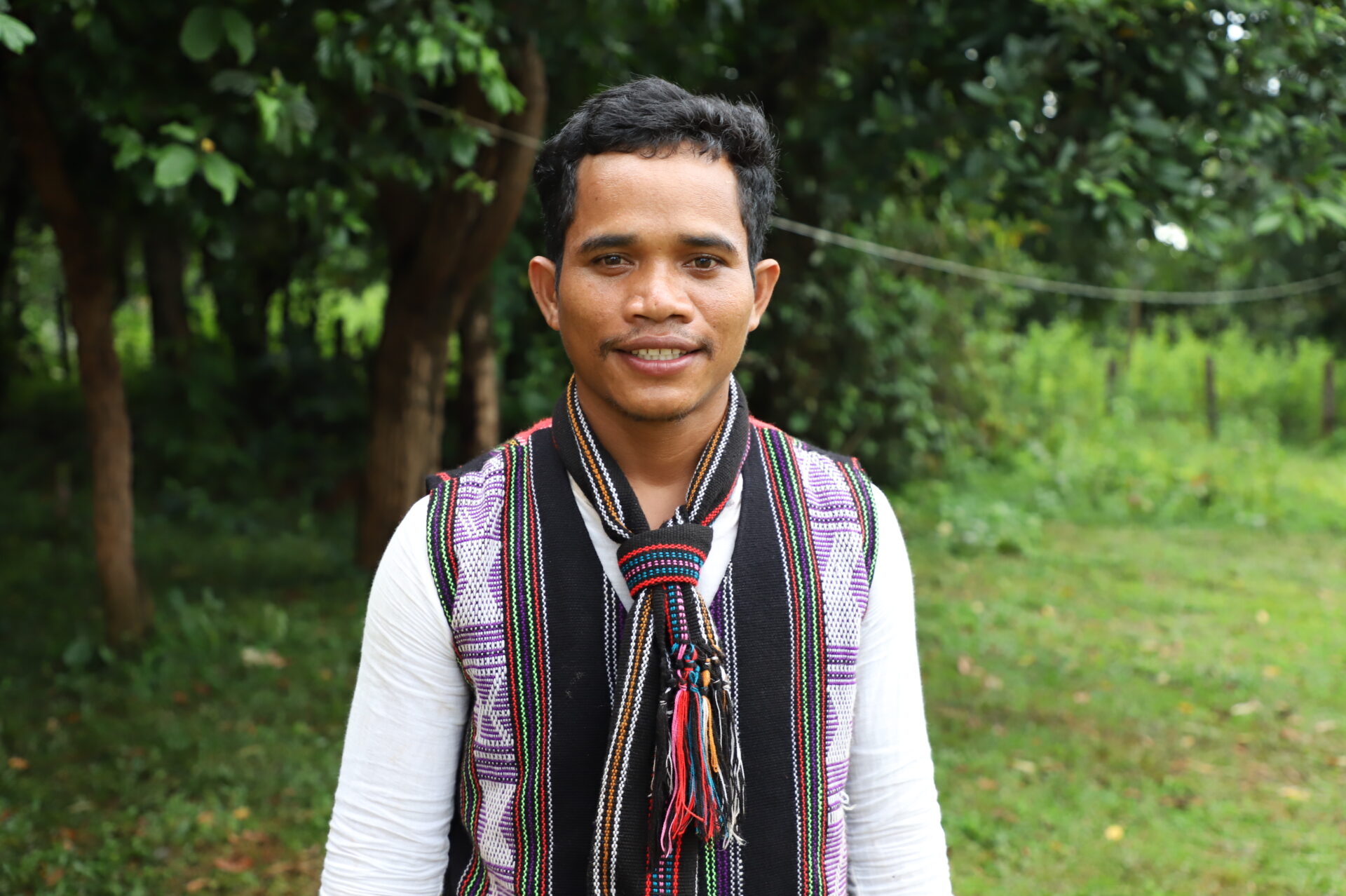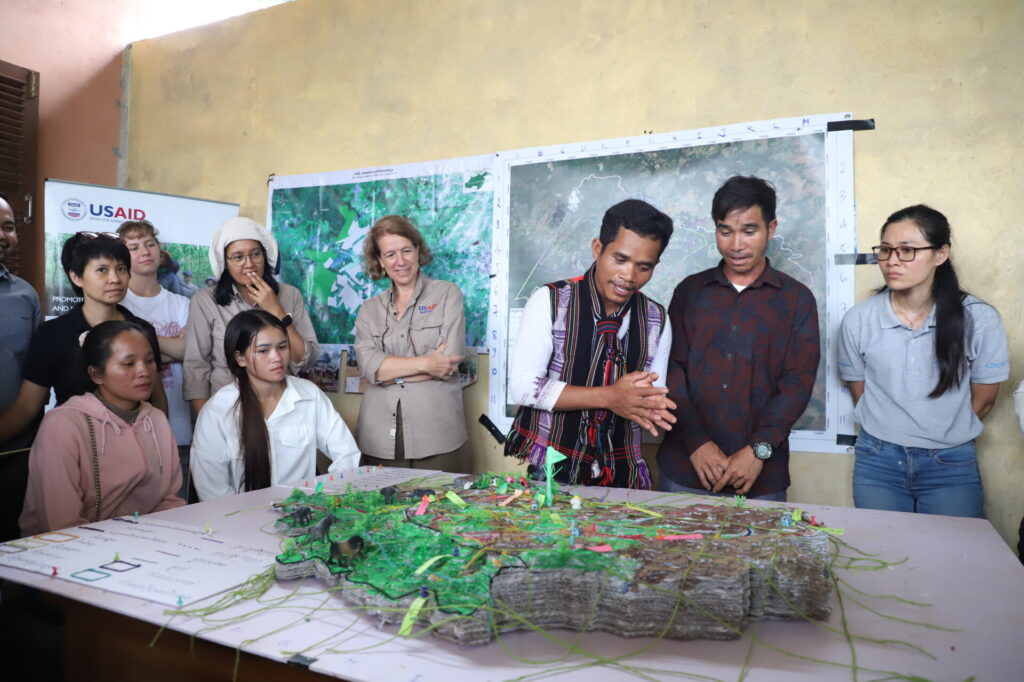As chief of the O Pong Rong Community Protected Area, Sari champions conservation and cultural preservation in the Keo Seima Wildlife Sanctuary, inspiring his community to safeguard the land that sustains them.

Keo Seima Wildlife Sanctuary REDD+ Project, Cambodia — Preng Soksari, a leader within Cambodia’s Indigenous Bunong community, has dedicated his life to preserving the natural resources and cultural heritage of his people. As the chief of the O Pong Rong Community Protected Area (CPA), Sari is passionate about his role in the Keo Seima Wildlife Sanctuary REDD+ project, a conservation initiative that has significantly impacted his community and the surrounding forests.
Growing up in Mondulkiri province in eastern Cambodia, where the Bunong community practices a rich tradition of animism, Sari was raised with a profound connection to nature. His family relied heavily on the forest, and his father, a hunter, ventured into its depths to provide for their needs. Tragically, when Sari was only 14, both of his parents passed away, leaving him an orphan. Despite these hardships, Sari completed his schooling up to grade 12 and later found work as an interpreter.
In 2023, Sari was elected CPA (Community Protected Area) community chief, a position he had never considered but accepted with deep respect and commitment. “Nothing compares to the trust my community has placed in me,” he shares. Since taking up the position, Sari has led the community with compassion, gaining skills in leadership and problem-solving and making strides in conservation efforts. With guidance from the KSWS REDD+ project, he has expanded his knowledge of environmental laws and formed partnerships with key stakeholders for the benefit of his community.
In just two years, Sari has introduced various initiatives, including a 3D mapping project of his community’s lands, an Indigenous arts group, a community nursery, and evening English classes for young people. “English is an essential skill that will allow people in our community to connect with the rest of the world,” Sari explains, noting how language can empower young people to share their stories and perspectives on a larger platform.

In addition to his role as an educator, Sari is deeply invested in preserving his Bunong culture and conserving the forests that form the backbone of his community’s spiritual and physical life. “The forest is sacred to us,” he says, “a place that provides food, shelters us from natural disasters, and serves as a final resting place for our ancestors.” Understanding this interdependence, Sari along with his fellow community members patrol the forest twice a month, working to prevent illegal logging and land grabbing. Through his leadership, they have built a joint law enforcement mechanism with local authorities, deterring outsiders from harming their land.
Sari’s views on wildlife have also evolved over time. Raised in a family that depended on wild meat, his engagement with conservation and environmental protection workshops has reshaped his understanding. “Now, I see wild animals as an essential part of our ecosystem rather than just a food source,” he says. He educates his community on the benefits of protecting wildlife, from ecotourism to the REDD+ funds supporting their conservation efforts.
Recently, with support from the REDD+ project, Sari attended a regional workshop in Thailand focused on Indigenous rights, environmental justice, and equitable climate action. This experience strengthened his commitment to empowering his community in decision-making processes, ensuring that the Bunong people have a voice in shaping their own future.
Through his actions, Sari has inspired a wave of awareness and collective action within his community, instilling a renewed sense of duty to protect the forest and uphold their Bunong heritage and values. “Our forests are treasures passed down by our ancestors,” he says proudly. As a leader and advocate, Sari continues to work tirelessly to preserve his culture, safeguard natural resources, and serve as a role model to his community, exemplifying the strength and resilience of the Bunong people.
